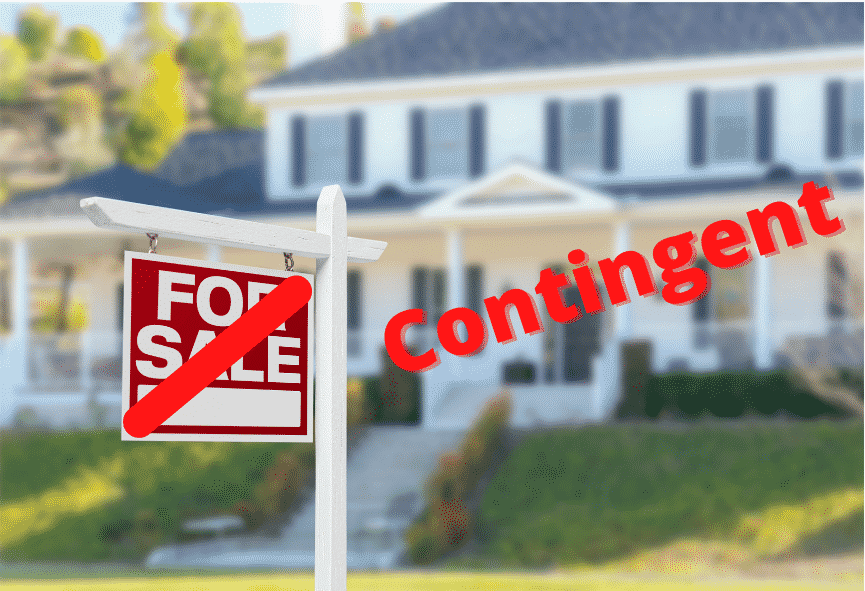If you are house hunting, you can agree that the experience is both exciting and stressful. While you are looking forward to settling in your dream home, you may be uncertain of some terms and processes when it comes to owning a property.
In real estate, a house is contingent when it is on offer, and the seller accepts the offer, putting it under contract. However, before the final sale, the buyer should follow some criteria or contingencies such as appraisal, inspection, and mortgage approval. If the buyer cannot meet the contingencies, they are free to back out of the agreement with their earnest money. Thus, a contingency can be a risk to the seller and is worth it if the buyer’s price makes sense.
Read on to understand more about a contingent house.
Contingent versus Pending
We cannot talk of contingency without first understanding the difference between contingent and pending. These commonly confused terms indicate the different parts in a house sales cycle.
A contingent listing is an active sale in which the seller accepts the offer, but together with the buyer, is still working through the sales issues. On this listing, the seller can continue showing the home and collect offers from prospective buyers. If the initial buyer satisfies the contingencies in the contract, the sale moves to pending. Therefore, a pending sale implies resolved issues and an almost closed deal.
At the pending sale stage, both parties are waiting to complete the documentation process before they can close the sale. Your listing at this stage is not active, and you can consider the deal almost done since at this point most sellers will not continue showing the homes to other buyers as the contract prevents them from accepting offers.
How Long Does a House Stay in Contingent Status?
As a prudent buyer or seller, you should have a timeframe within which the buyer should secure their mortgage approval. On average, a house should stay in contingency status between 30 to 60 days. If the buyer cannot get a mortgage upon the expiry of this period, then the seller can freely cancel their contract and look for another buyer.
A longer contingency period is usually advisable, given some delay factors. For instance, you may encounter a financing delay. This can happen when your financier asks for additional documents or a public holiday comes in between, prolonging the approval. Also, while you can get the approval letter soon, your mortgage application may be unsuccessful, forcing you to look for another lender to give you the loan before the deadline.
The contingency period is dependent on both the seller and buyer. If the buyer’s market is strong, the seller will likely accept a longer timeframe. On the other hand, if the sellers’ market is strong, then home buyers will have difficulty obtaining a longer deadline. The bottom line is that sellers prefer buyers who can access funding quickly.
Even with the above facts set, as a buyer, you still have room to request an extension if you are having challenges in your mortgage approval and suspect it might not go through before the expiry of the contingency period. It is up to the seller to accept or deny your extension request, and, in some instances, you might need to offer extra earnest money to prove your commitment and seriousness in buying the home. You may also need a lawyer to prepare these amendments depending on your initial contract, and both parties may have to sign the amendments before the initial deadline.
How Often Do Contingent Offers Fall Through?
In real estate, an offer is not a done deal. Hence, knowing how often contingent offers fall through is vital. According to the National Association of Realtors (NARS) survey, 76% of the recently closed sales in May 2020 were purchase contingencies (1). Also, according to this survey, 9% of the contracts were terminated. The main reason for the high figure in 2020 was the COVID-19 pandemic, resulting in about 29% of the buyers losing their jobs.
Before the pandemic, terminated contracts, according to NAR, represented 2-5% of deals in a month. Thus, we can safely conclude that a contingent offer has a 1-10% chance of falling out of the contract. As a result, there are high chances that your contract will still close despite the delays. Even then, any risk on a house sale is still a bad thing that no owner wants to figure out.
A contingent can fall through from the buyer’s side due to financing, home inspections, and other factors. While every buyer is hopeful that they will get a mortgage and buy their dream home, certain things may come up in the process and invalidate this dream. For instance, after mortgage approval, a buyer may lose their job, making the lender lose confidence that they can repay the mortgage. The financier may also discover a negative credit issue about the buyer, debt accrual, or change their lender guidelines to disqualify the buyer from the mortgage.
Also, certain factors such as the first right of refusal and kick out can cause a contingency to fall through. In the first right of refusal, a buyer could be selling their house and buying a new one simultaneously, while the seller protects themselves by waiting for the buyer to sell the old house. Both parties can agree that the seller accepts additional offers in such a case. Thus, a seller can back out if the buyer does not proceed with the deal. In the “kick out,” the contract allows the seller to back out from the contract if the buyer takes too long to sell their old house. If the buyer does not proceed with the buy, then the seller can back out.
Contingencies can also fall through and affect sellers due to appraisals, title, and inspection. Bidding wars force sellers to raise prices beyond the actual values. This causes financing issues on the buyer’s end, as lenders will only give what the appraisal report values the home at. If the buyer really needs the house, they may have to top up the remaining amount from their pocket or back out, affecting the seller. Inspection reports reveal flaws, and if the seller is unwilling to make the repairs to maintain the selling price, the buyer might back out. Finally, lenders will check the house title to ensure no outstanding loans on the property that could affect the buyer upon purchase. If they find any undisclosed obligations, this can lengthen the duration to close the sale, and if the title has issues, then the buyer can back out.
Can You Put an Offer on a Contingent House?
Putting an offer on a house that is contingent gives you priority to buy a house once the current contract falls through. However, the question remains whether putting an offer on a contingent house is worth it.
Well, this is dependent on how much you need the home. Putting an offer on a contingent house gives you a fast closing if you put a better offer and the seller happens to be tired with their current contract. Also, there is less competition as such listings are not obvious online. In most cases, other buyers will scroll past it, not knowing that they can make an offer, reducing the competition. This is why before making an offer on a contingent home, you should be ready to buy the home as the offer has a high chance of going through.
While placing an offer on a contingent house seems like a good deal, it also has setbacks. For instance, you will likely pay a higher price to get the home. The higher offer encourages the seller to back out of the current contract if they take longer than expected. Also, there is no guarantee that your efforts will pay out as you are putting an offer on a house having a potential buyer. So, if your offer does not pull through, you will end up wasting a lot of your time which you could spend bidding on a better house.
Contingent Home Sales and Home Inspections
A home inspection outlines the state of the home you intend to buy. You can have this requirement in your contract. With a home inspection contingency, you can negotiate for repairs if need be or a lower price if the seller is unwilling to undertake the repairs.
An inspection contingency clause will also give the time frame for the inspection, and the buyer can raise issues from the inspection. It also includes the duration of response of the seller to the buyer. This means if you are unsure whether you want the house, you can communicate with the seller and waive your inspection contingency.
Now that you understand the relationship between contingency and home inspection, you are more confident in buying your next home. For more details, check our home inspection checklist.
References
(1) NAR Study – REALTORS® Confidence Index (RCI) survey, January 2020 https://www.nar.realtor/sites/default/files/documents/2020-01-realtors-confidence-index-02-21-2020.pdf




